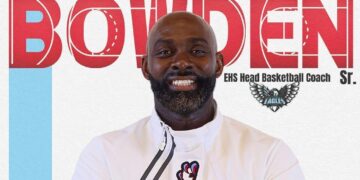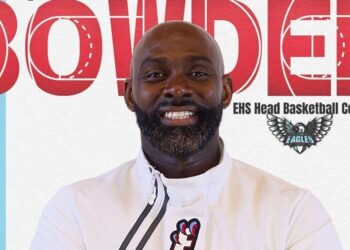CHICAGO — Before his heart transplant, Louis Smith was prepared for death.
In Saudi Arabia right after the Gulf War, the 66-year-old veteran helped lead a missile platoon that guarded aircraft. He served his country for more than two decades in the Middle East, South Korea and Europe.
“I wasn’t afraid to die. I was a soldier,” said Smith, a Chicagoland native who, at the age of 17, followed in his father’s footsteps and joined the U.S. Army.
However, Smith was concerned about what life would be like if major cardiac surgery messed up a sentimental chest tattoo. Smith was hospitalized around Thanksgiving last year due to a hereditary condition that caused a buildup of abnormal proteins in his heart and eventually transferred to Northwestern Memorial Hospital to get ready for the procedure.
The ink on his chest spells out a lyric from Frank Sinatra’s “My Way,” a song Smith’s father introduced him to when he was young. The late-1960s hit helped guide how his father lived, and how the son has lived as well.
So while waiting on a transplant list, Smith asked his surgeon to make an effort to save the tattoo while saving his life.
Smith was lucky because a suitable heart became available to him quickly. On New Year’s Eve, his surgeon attached the heart to Smith and made sure the key points of the tattoo lined up when he closed up the incision.
“We can’t forget that our patients are people and there’s parts of them that are important to them outside of what we often see, which is just the heart condition,” said Sarah Chuzi, one of Smith’s cardiologists. “A heart transplant is a very big deal, but obviously this tattoo is really important to him, and I like the fact that he advocated for himself … I think that kind of speaks to the spirit of veterans.”
With his new heart and lease on life, Smith has spoken to other veterans about taking their health seriously and seeking help when it’s needed. Smith said some veterans, like himself, are often not great at listening to and working with medical professionals because in the military they were trained to put a Band-Aid on their problems and get back in the field.
“I knew something was wrong, but I was kind of fighting it,” Smith said about the first troubles he had because of his heart, which began in 2021 and included running out of breath while cutting grass and walking up stairs.
Because of the transplant and other care Smith received during his approximately 70-day hospital stay, Smith, who resides in Country Club Hills, may keep passing on the wisdom he’s acquired from a life doing it his own way to three children, six grandchildren and a great-grandchild.
“I wanted to be able to see my grandkids grow up and at least know that they are alright before I left,” Smith said.
Soon after Smith was discharged from the hospital, he drove to Oklahoma with his wife and saw the son of his oldest daughter graduate from Army basic training. Smith’s one son served in the National Guard.
In September, Smith was able to enjoy pizza at Chuck E. Cheese during his great-granddaughter Promise’s first birthday party. On Thursday, Promise’s mother dropped her off at Smith’s house because she had a meeting. This gave Smith the chance to play with Promise, but he also had to defend his oatmeal against her efforts to consume it.
“When you don’t want to do something, then she turns around and looks at you like she’s growling at you or something. She’s something else,” Smith said. “She’ll give you that face and have those cubby cheeks out.”
Smith said the transplant has changed his behavior. He speculates about the behavior of the person whose heart is now beating in his chest. He imagines that the heart’s original owner liked to sleep all the time because Smith has been wanting that too. When Smith hangs out with his friends, he’s much quieter than he once was.
One thing is virtually the same after the surgery: the tattoo. “I did it my way,” reads the first line of the tattoo, and the second simply says “Smitty,” a nickname for both Smith and his father that was used by their Army buddies.
“It looks like (the surgeon) didn’t touch it,” Smith said. “A lot of people that you see that had a heart transplant, when they rip up their shirt, you see like a big caterpillar on their chest. You don’t see that on mine.”
Benjamin Bryner, Smith’s surgeon, said he thinks everyone who has a tattoo is worried about preserving it — whether or not they tell their surgeon they are worried. Bryner said he puts tattoos back together and makes them look nice by employing the same skills he uses when closing up any incision and trying to make it look good. He just has to pay attention to how the tattoo looks before surgery.
Lining up the key points of a tattoo is not quite as difficult as lining up the logistics of a heart transplant.
“Everything needs to line up perfectly so that the instant the donor heart comes in through the doors of the hospital, we’re ready to start sewing it in,” Bryner said. “So the challenge of a heart transplant is only half surgical. The other half is logistics.”
Want to reach a local audience and grow your business?
Our website is the perfect platform to connect with engaged readers in your local area.
Whether you're looking for banner ads, sponsored content, or custom promotions, we can tailor a package to meet your needs.
Contact us today to learn more about advertising opportunities!
CONTACT US NOW




